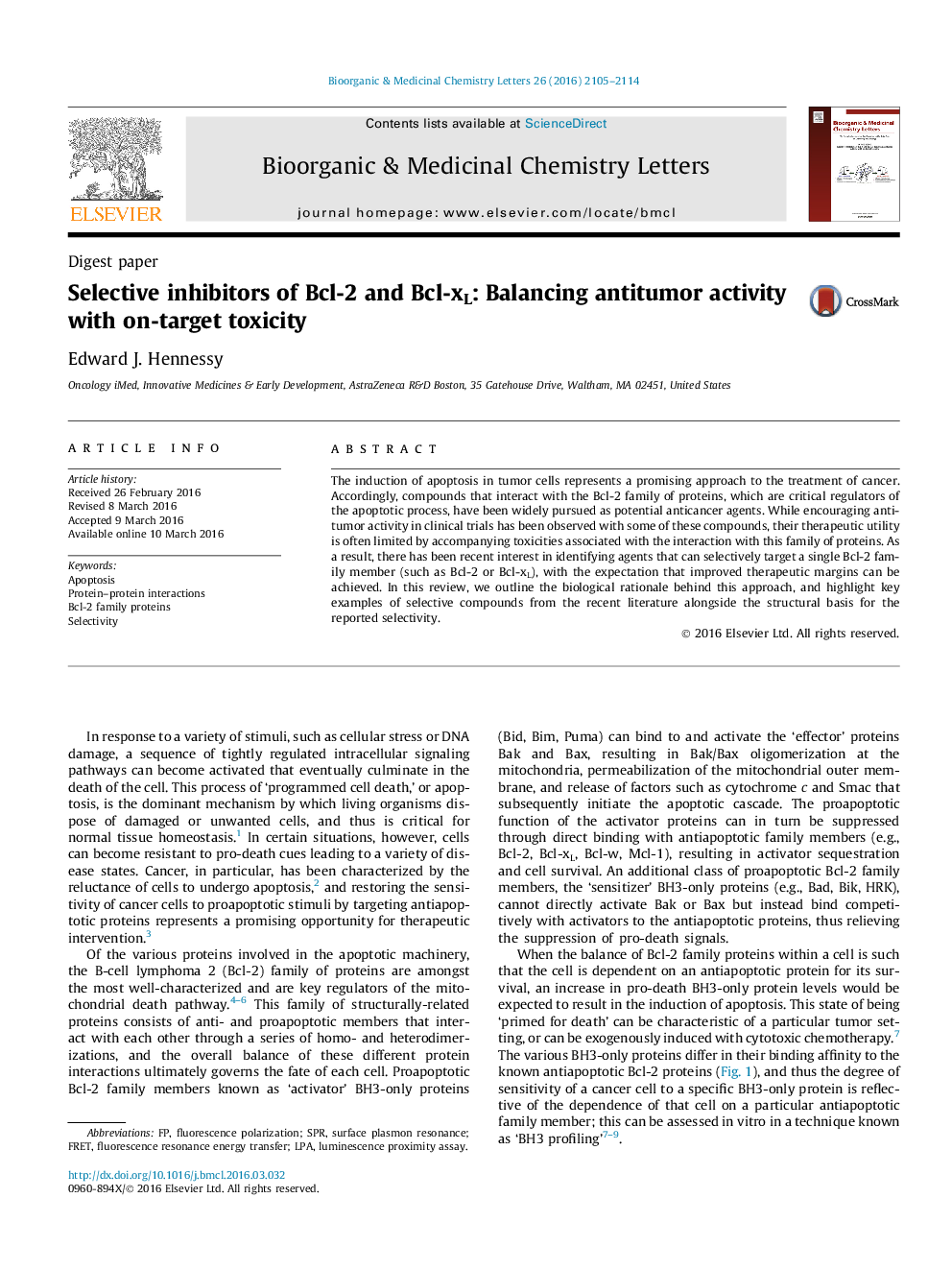| Article ID | Journal | Published Year | Pages | File Type |
|---|---|---|---|---|
| 1368573 | Bioorganic & Medicinal Chemistry Letters | 2016 | 10 Pages |
The induction of apoptosis in tumor cells represents a promising approach to the treatment of cancer. Accordingly, compounds that interact with the Bcl-2 family of proteins, which are critical regulators of the apoptotic process, have been widely pursued as potential anticancer agents. While encouraging antitumor activity in clinical trials has been observed with some of these compounds, their therapeutic utility is often limited by accompanying toxicities associated with the interaction with this family of proteins. As a result, there has been recent interest in identifying agents that can selectively target a single Bcl-2 family member (such as Bcl-2 or Bcl-xL), with the expectation that improved therapeutic margins can be achieved. In this review, we outline the biological rationale behind this approach, and highlight key examples of selective compounds from the recent literature alongside the structural basis for the reported selectivity.
Graphical abstractFigure optionsDownload full-size imageDownload as PowerPoint slide
